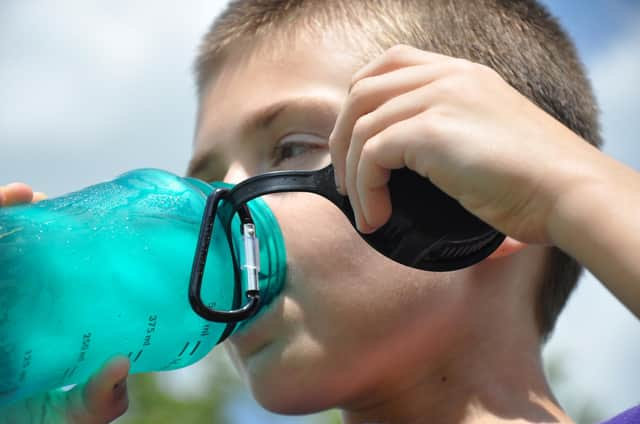Try these ways of keeping kids cool during heatwaves


Recent heatwaves saw the first ever ‘red-warning’ for extreme heat from the Met Office.
With the heat posing a real threat to people’s safety, and children presenting a higher risk for heatstroke than adults according to the NHS, parents might need some help to make sure youngsters can enjoy their summers without mishap.
Advertisement
Hide AdAdvertisement
Hide AdMyTutor has shared its experts' tips on creative ways to beat the heat with kids, whether they are studying or not.
Firstly, make sure your child always has water with them. Keeping hydrated in the heat is crucial to fight heatstroke, heat exhaustion, and dehydration.
According to recent research, 45 per cent of Brits only drink about one glass of water a day, which is nowhere near enough in high temperatures.
By carrying a water bottle and noting how many of these are drunk throughout the day, you can ensure water levels are kept up.
Advertisement
Hide AdAdvertisement
Hide AdIn extreme heat children lose more water through sweat, so it’s a good idea to monitor how much they are drinking and throw in an ice cube or two.Water can be used in many more ways. The World Health Organisation suggests hanging damp towels around the room. Although they may increase the humidity, wet towels will help cool the air as the water evaporates from them. You can also place tea towels or clothes in the freezer and drape them around your shoulders.
Another useful tip is taking a cold shower or bath during a study or activity break.
There are key points on the body that act as temperature regulators. Applying cold water or ice to places where veins are close to the surface, such as the wrists, neck, chest, feet, and temples, can lower the temperature of blood running through the body.
Freezing an ice pack and applying it to strategic points is good while sitting, or fill a bucket with cool water and ice for feet.Watching shows and films that relate to what they’re studying in school can help keep your teen’s brain engaged.
Advertisement
Hide AdAdvertisement
Hide AdThese include documentaries like BBC’s Our Planet for those studying geography, Netflix’s The World Within for teens interested in biology or The Mind: Explained if a psychology student. Visit the MyTutor website for a list of films and documentaries that fit GCSE and A Level curriculums.